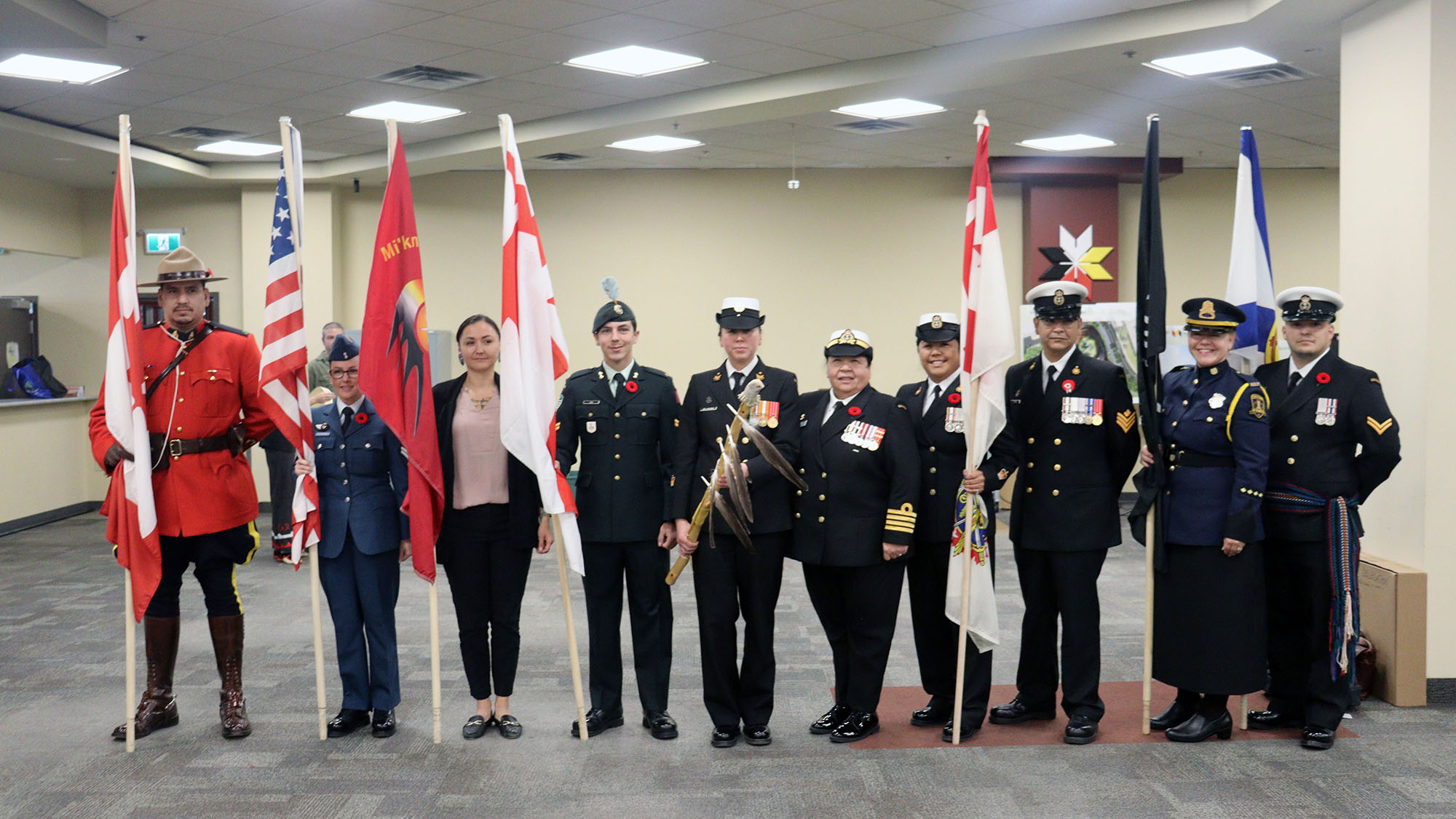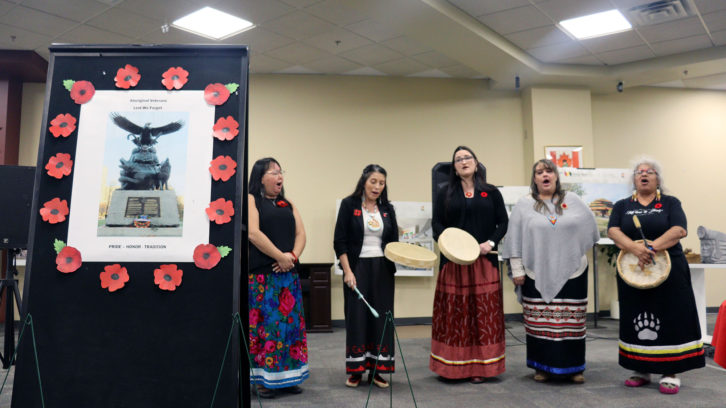Ceremony lauds Indigenous veterans
Elder and veteran commemorates Indigenous military members, past and present

caption
Indigenous veterans pose before a ceremony honouring Indigenous veterans on Tuesday in Halifax.Contributions by Indigenous veterans to Canada’s military efforts have been overlooked for many years, said a 36-year naval veteran at a ceremony on Tuesday.
Debbie Eisan, from the Batchewana First Nation, led the ceremony for Indigenous Veterans Day at the Mi’kmaw Native Friendship Centre.
“I’m very proud to be here today in uniform and honouring and celebrating our Indigenous veterans,” the Elder said in an interview before the event.
Eisan served as a chief petty officer and supply technician, and retired from the navy in 2011. She says she helped Indigenous personnel adjust to military life during her career, to preserve their heritage while serving in a system that has historically not treated them well.
The event took place in the temporary location of the Mi’kmaw Native Friendship Centre on Brunswick Street in Halifax. Gathered around the large open office space were Indigenous veterans, along with their families, loved ones, and representatives from the Government of Canada, Veterans Affairs Canada and several branches of the military
The ceremony began with a procession of veterans marching into the room with flags raised in honour of those who still serve, those who have retired, and those who sacrificed their lives to defend Canada.
Indigenous poet Raymond Sewell sang The Eagle Song, the Mi’kmaq Native Friendship Centre’s drummers played while chanting, and there was a reading of the poem In Flanders Fields, in Mi’kmaq.
The end of the ceremony was marked by a bugler playing the Last Post, and audience members then paid their respects, leaving poppies on wreaths.

caption
The Mi’kmaw Native Friendship Centre’s drummers perform during Tuesday’s ceremony.Indigenous Veterans Day
The first Indigenous Veterans Day took place on Nov. 8, 1993, when the National Aboriginal Veterans Monument in Ottawa was unveiled. Since then, many ceremonies have been held in Canadian cities over the years.
Indigenous peoples have served in the Canadian military for many conflicts. Even when fighting through both World Wars, the Korean War, and other conflicts, Indigenous veterans were not treated with the respect they deserve, Eisan said.
Indigenous veterans returning from Canada’s conflicts were not accorded the same benefits and respect accorded to non-Indigenous veterans, Eisan said. She said when medals were awarded, Indigenous veterans had to go to different establishments to receive them, compared to other veterans.
During her speech to the crowd, Eisan said as many as 7,000 First Nations people served in the many conflicts of the 20th century, with at least 500 losing their lives according to the Government of Canada.
Anthony Thomas, president of the board of directors for the Mi’kmaw Native Friendship Centre, wants people to take the experience they had at the ceremony to educate themselves.
“We just want people to understand our contribution to maintain freedom in this country. I think maybe not a whole lot of people might . . . be aware of it. But it’s a good way for us to promote that inclusion when we talk about reconciliation,” he said. “Knowledge is strength.”
Importance of history
Federal Indigenous Services Minister Patty Hadju said Canadians should know more about Indigenous military history.
“So it’s important, I think, for all Canadians to understand that not everybody’s experiences are the same when they return, and that oftentimes, Indigenous contributions weren’t celebrated,” Hadju said.
Petty Officer 1st Class Cheyanne Delaronde wants more young Indigenous people to be proud of their heritage and to learn more about their culture and history in the military.
“The more awareness that we have, will encourage our youth to be more involved and help all the survivors of residential schools, ’60s scoop, and day schools. To be proud of what they have, because most of the time, they’re a little hesitant on showing the pride that comes along with being of Indigenous descent,” Delaronde said after the ceremony.
Delaronde said her experience in the military has been a good way to gain experiences she would not find otherwise.
“The military is a place where I have met amazing people. So really, just having a second family, also being able to see the world,” she said.
Correction:
About the author

Decklan Z. Rolle
Decklan Z. Rolle is a reporter for the Signal. He is currently majoring in journalism and gaining a minor in contemporary studies at the University...
